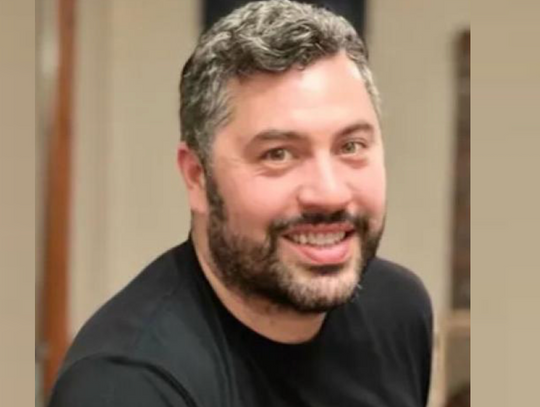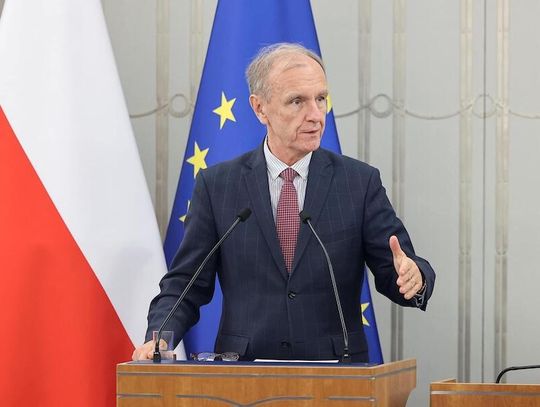Washington – Today, U.S. Representative Mike Quigley (IL-05), Ranking Democrat on the House Permanent Select Committee on Intelligence Emerging Threats subcommittee, announced that the Intelligence Committee advanced the bipartisan Intelligence Authorization Act (IAA) for Fiscal Year (FY) 2017 by unanimous voice vote. The annual IAA ensures that the programs and activities of the U.S. Intelligence Community (IC), including Department of Defense (DoD) intelligence elements, are authorized in law and optimally resourced to protect the nation from threats at home and abroad. Equally important, this critical piece of legislation also ensures rigorous congressional oversight of the IC, including over its most sensitive aspects.
“This year’s Intelligence Authorization Act provides funding, oversight of and direction to vital collection and analysis programs. It also provides guidance for how best to support and leverage our partners and allies, which is critical in a world of shrinking budgets and ever-increasing threats. That is why I am happy to support this year’s IAA,” said Rep. Quigley. “In particular, I am pleased that the bill includes a provision to continue our support for security services in Ukraine. Russia remains a significant threat to its neighbors, and to the U.S. Bolstering our partners in Eastern Europe is one key way to check Russia’s increasing adventurism. Looking ahead, we will say focused on this threat, and we will also continue to focus on our national security programs at home. We cannot allow ourselves to get lulled into a false sense of security, simply because we lack information about specific threats against soft targets like stadiums in our cities. We must look ahead and do everything we can to constantly assess risk and take appropriate steps to stop attacks before they occur.”
This year’s IAA authorizes intelligence funding nearly equal to the FY17 President’s Budget request, which is approximately the same as the FY16 enacted budget level. The FY17 IAA’s Base budget authorization is nearly equal to the President’s request, and the Overseas Contingency Operations authorization is roughly 1.5 percent above the request. It provides substantial and appropriate oversight of the IC by trimming unnecessary funding and reprioritizing resource allocation; adding money to underfunded programs; and providing congressional direction to improve processes, gain efficiencies, and ensure greater transparency and accountability within the IC. It also fences significant amounts of funding to better ensure continuous IC accountability throughout the year.
Some highlights of the bill include:
Emphasizes the need to focus on long term threats, such as those from an increasingly aggressive China, Russia and North Korea, while maintaining focus on the immediate threats posed by terrorism and the security challenges in the Middle East, North Africa, and South Asia;
Protects our most vital capabilities, whether in space, cyberspace, on land or at sea, as well as our most invaluable resources—our IC professionals—against growing threats across domains;
Leverages and promotes commercial capabilities, while investing in the most advanced technologies that do not yet have commercial application;
Promotes greater capacity-building among key partners and allies to further leverage shared resources and competencies, and advances more strategic approaches to these efforts;
Emphasizes the importance of recruiting, developing, and retaining the most effective and diverse workforce to answer the increasingly complex challenges facing the IC and the defense intelligence enterprise;
Continues to support HUMINT, a critical intelligence mission;
Includes provisions aimed at better ensuring the integrity of DoD intelligence analysis, and improves procedures for IC whistleblowers to report complaints to Congress;
Promotes, through resources and direction, enhanced cyber security for our nation’s most critical systems; and
Ensures thorough oversight of surveillance capabilities.
Committee Democratic Members successfully included provisions which substantially improved the IAA. Specifically:
· Rep. Mike Quigley’s (IL-05) language to continue support to security services in Ukraine;
· Rep. Jim Himes’s (CT-04) provision to improve the timeliness and fairness of the pre-publication review process throughout the IC, by calling for uniform guidance to ensure that reviews only block publication of appropriately classified material, and that employees at each IC element receive impartial and expeditious reviews of their works;
· Rep. Terri Sewell’s (AL-07) language on investment in “Centers of Academic Excellence” programs, helping to guarantee that a diverse array of students can take part in IC internships, and her requirement to collect data to evaluate the IC’s Federally-funded academic programs;
· Rep. André Carson’s (IN-07) provision requiring the IC to publish insignia commonly associated with terrorist organizations to assist public and private entities in swiftly removing terrorist content online; his provision on cooperation and de-confliction between the Departments of Homeland Security and State regarding countering violent extremism programs; and his requirement to have the Committee receive information on the operational impacts of foreign investment in the United States;
· Rep. Jackie Speier’s (CA-14) provisions to: (a) standardize declassification photocopying fees across the IC to promote increased availability of information and enhance transparency; (b) expand access to graduate education programs at the Defense Intelligence Agency; (c) obtain information on the mental health resilience programs available to IC civilians returning from tours in combat zones; and (d) study reprisals taken against IC contractors who make disclosures that would be legally protected if made by IC employees;
· Rep. Eric Swalwell’s (CA-15) provision to track foreign fighters, his requirement to analyze the status of loan forgiveness and debt counseling programs in the IC, and his provision to better understand how the Departments of Homeland Security and Energy take advantage of the expertise resident at our National Labs; and
· Rep. Patrick Murphy’s (FL-18) provisions to: (a) provide a report detailing cybersecurity threats to, or vulnerabilities in, systems employed by seaports and transshipment hubs, including efforts to improve our preparedness and response to a cyber attack; (b) improve intelligence reporting with respect to Iran’s compliance with the Joint Comprehensive Plan of Action; and (c) a report on the security threats emanating from maritime smuggling routes and ways to better cooperate with other nations to mitigate these threats.
Some concerns that Democrats maintain:
While IAA funds, and, for the first time, specifically authorizes the activities of the Privacy and Civil Liberties Oversight Board (PCLOB), Democrats will remain vigilant to ensure that the its oversight jurisdiction is not constrained. Last year, the IAA included a provision which curtailed PCLOB's authority over U.S. Covert Action programs – this year Representative Himes tried unsuccessfully to reverse that limitation through an amendment.
The Minority remains committed to a strong counterterrorism posture, but also to a more transparent one. Accordingly, the Minority reiterates the need for the release of substantial data on the total number of combatants and noncombatant civilians who may have been killed or injured as a result of counterterrorism action. We believe this requirement should be embedded in statute so it will transcend administrations.
The IAA calls for a declassification review of certain intelligence products regarding terrorist acts committed by transferred detainees before their arrival at Guantanamo Bay. The only detainees covered by the declassification provision, however, are those transferred since President Obama took office, disregarding the roughly 500 detainees transferred or released by the prior administration—detainees whose recidivism rates generally remain far higher than any transferred or released under President Obama.
Democrats are also disappointed that the IAA does not fund an IC request to enhance analysis on the national security implications of climate change, since such security challenges will be substantial.
(Office of Representative Mike Quigley, IL-05)
Caption: Rep. Mike Quigley Photo: Dariusz Lachowski
Rep. Quigley Announces Passage of Intelligence Authorization Act by House Committee
- 04/29/2016 10:53 PM
Reklama










